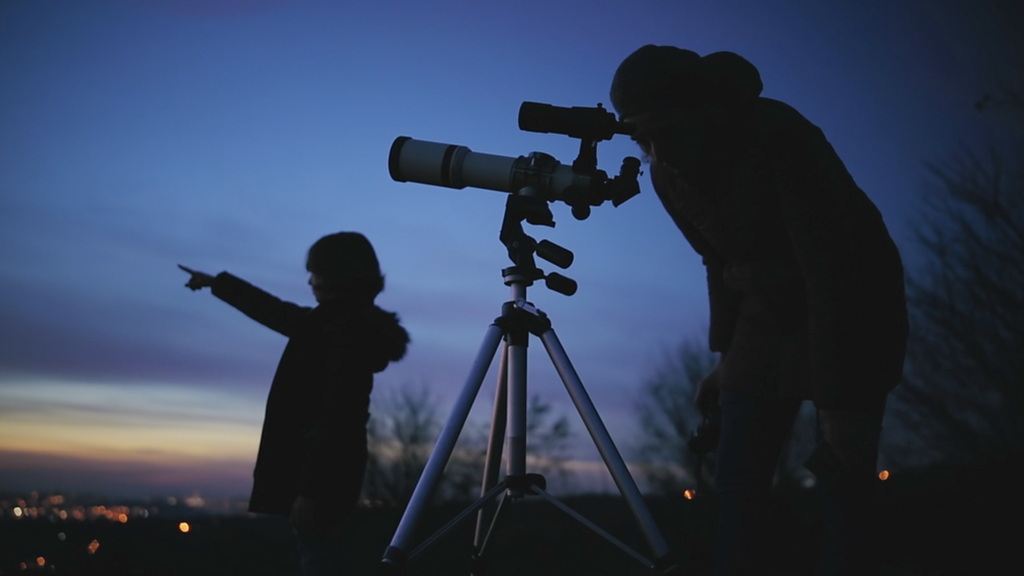Earth Hour 2024: What is it and how can you take part?
- Published
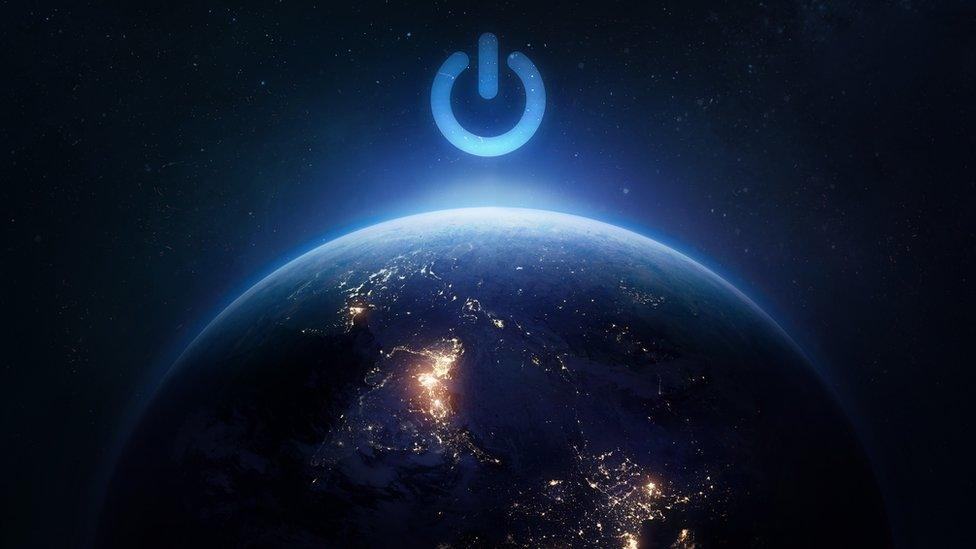
Every year famous landmarks around the world power down for Earth Hour.
The annual event takes place to encourage people to turn off their lights for 60 minutes to raise awareness of environmental issues.
It's the biggest global switch off of its kind.
And this year, people and businesses from across the UK are being encouraged to take part.
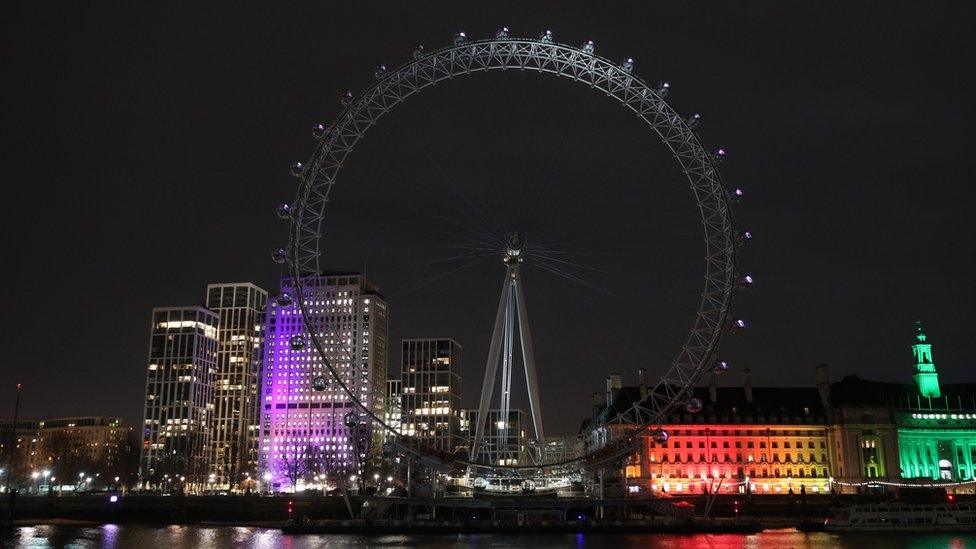
The London Eye in England's capital city turned its lights off for Earth Hour in 2021
One of the organisers, the World Wildlife Foundation (WWF), did some research with data company YouGov about the climate crisis ahead of this year's Earth Hour.
They surveyed 2,100 adults, and more than half of those people (58%) think drastic action is needed to combat climate change, and just 12% think that what's currently being done is enough to help.
Earth Hour is happening on Saturday 23 March, 2024 at 8.30pm - so how can you get involved?
What is Earth Hour and how did it start?
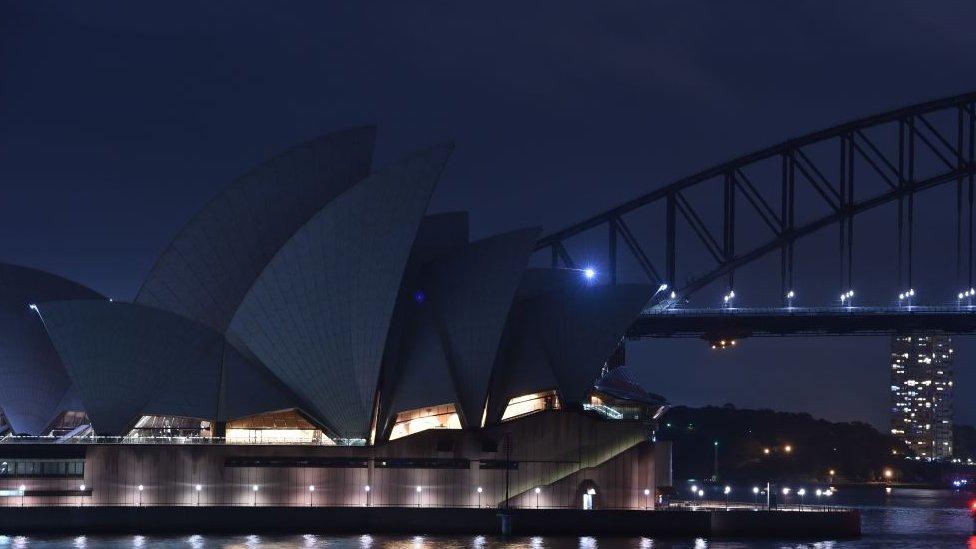
The Sydney Opera House in Australia with most of its lights switched off for Earth Hour
On 31 March 2007, more than 2.2 million individuals and 2,000 businesses in Sydney, Australia switched off their lights for one hour. This was the beginning of the Earth Hour movement.
The organisers, which include wildlife charity WWF, say they want to draw attention to the climate crisis and the damage being done to the natural world.
Now, more than 190 countries take part in switch-off events and activities, to show their support for protecting our planet.
Famous landmarks like the Sydney Opera House in Australia, the Empire State Building in New York, and Buckingham Palace in London have all previously switched off their lights for Earth Hour.
How can I take part?
It's not just big businesses and landmarks that can take part, lots of people mark Earth Hour. You can tell your family and friends about it and encourage them to take part too.
And it's not just about switching off your lights - organisers encourage people to use the 60 minutes to do other positive things for the planet too, such as sharing energy saving tips or supporting wildlife.
Here are some ideas from the Earth Hour team for what you can do during Earth Hour after you turn the lights off:
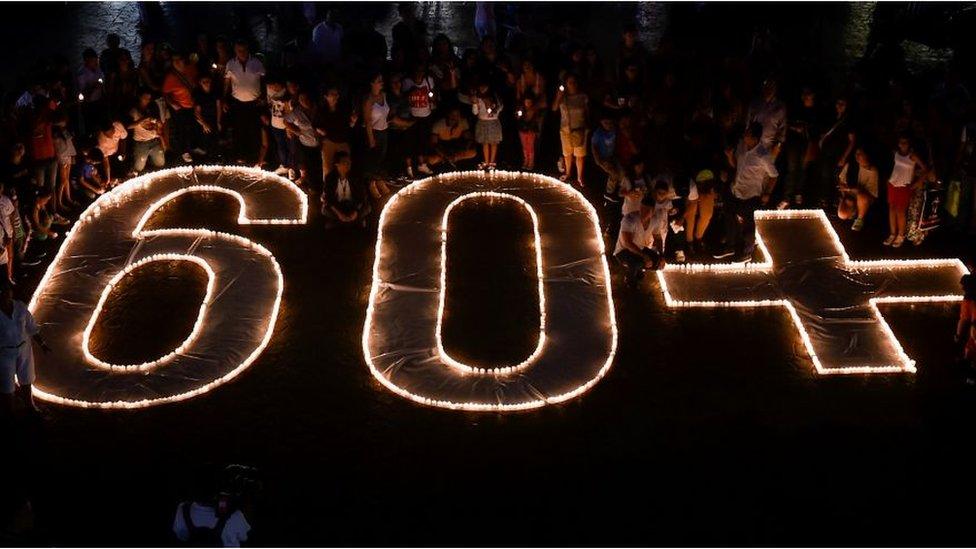
In the city of Cali in Columbia, people made this sign from candles. The 'plus' sign on the Earth Hour logo symbolises that the campaign is beyond just 60 minutes
1. Reconnect with nature
How about using the darkness to do a bit of stargazing? It's a great opportunity to enjoy the outdoors without any distractions.
2. Prepare a meal with family and eat it by candlelight
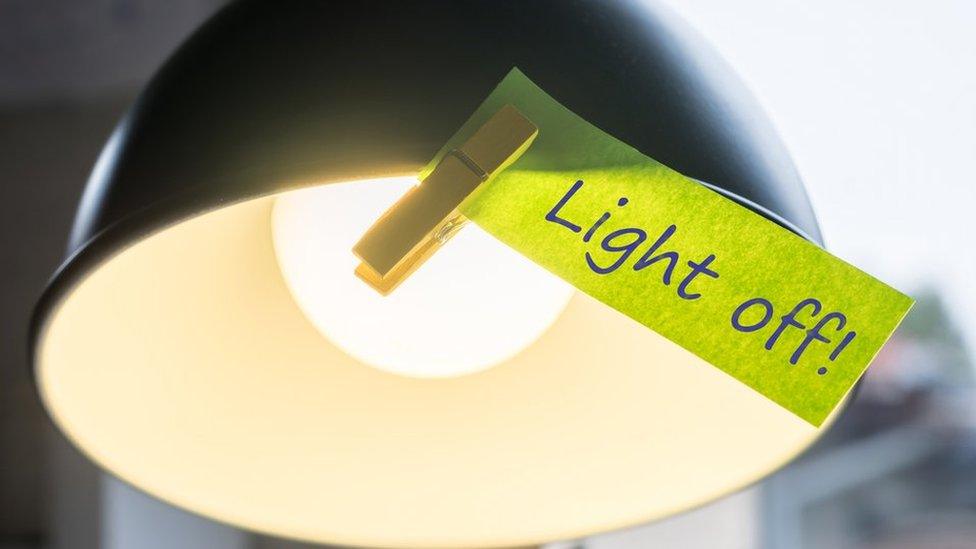
Think about how to make a meal which is environmentally friendly. You could use less, or no, meat and less packaging. Challenge yourself to leave no food waste at all.
3. Try some new activities
You could try some night photography or get out board games to play with your family.
- Published16 April 2019
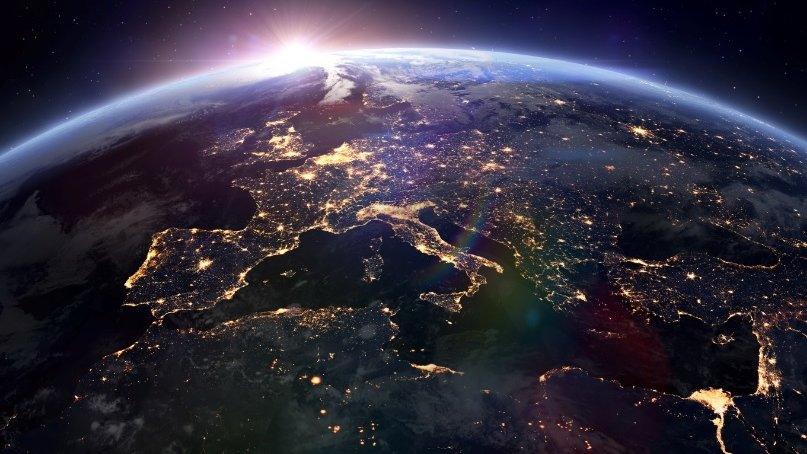
- Published15 September 2020

- Published5 March 2022
